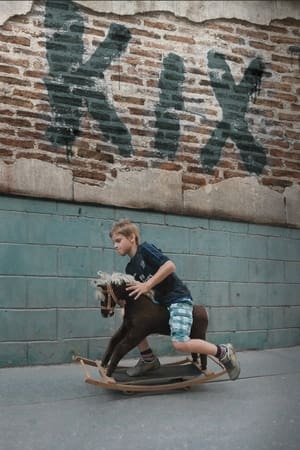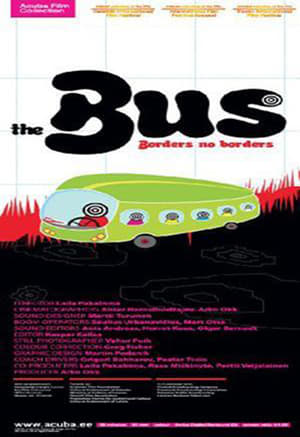
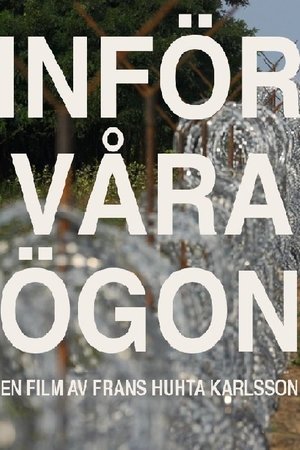
Before Our Eyes(2017)
One inside, one outside. One thin line that creates “us” and “them”. The importance of the borders has again a huge impact in Europe. Yesterday it was all about free movement. Today it´s about controled borders. And walls and fences have become normality. “Before our eyes” is a testimony that shows a situation where Hungary, and indirectly Europe closes itself to the outside world. The film portrays four places, four events, which was filmed over three days in early September 2015, when the worst refugee crisis we have seen since the Second World War started in earnest. “My Europe does not build walls!” said Stefan Löfven, the swedish prime minister, in a speech a few days later. Before our eyes shows how words and actions are no longer connected. Today, Spain, Greece, Bulgaria, the UK, Hungary, Slovenia and Austria have built fences and walls to strengthen theirs and Europe’s external borders.
Movie: Before Our Eyes

Inför våra ögon
HomePage
Overview
One inside, one outside. One thin line that creates “us” and “them”. The importance of the borders has again a huge impact in Europe. Yesterday it was all about free movement. Today it´s about controled borders. And walls and fences have become normality. “Before our eyes” is a testimony that shows a situation where Hungary, and indirectly Europe closes itself to the outside world. The film portrays four places, four events, which was filmed over three days in early September 2015, when the worst refugee crisis we have seen since the Second World War started in earnest. “My Europe does not build walls!” said Stefan Löfven, the swedish prime minister, in a speech a few days later. Before our eyes shows how words and actions are no longer connected. Today, Spain, Greece, Bulgaria, the UK, Hungary, Slovenia and Austria have built fences and walls to strengthen theirs and Europe’s external borders.
Release Date
2017-01-01
Average
0
Rating:
0.0 startsTagline
Genres
Languages:
EnglishMagyarsvenskaKeywords
Similar Movies
 6.8
6.8Belarus: An Ordinary Dictatorship(fr)
It’s the last dictatorship of Europe, caught in a Soviet time-warp, where the secret police is still called the KGB and the president rules by fear. Disappearances, political assassinations, waves of repression and mass arrests are all regular occurances. But while half of Belarus moves closer to Russia, the other half is trying to resist…
 0.0
0.0Elie Wiesel Goes Home(hu)
A documentary chronicling the adolescent years of Elie Wiesel and the history of his sufferings. Eliezer was fifteen when Fascism brutally altered his life forever. Fifty years later, he returns to Sighetu Marmatiei, the town where he was born, to walk the painful road of remembrance - but is it possible to speak of the unspeakable? Or does Auschwitz lie beyond the capacity of any human language - the place where words and stories run out?
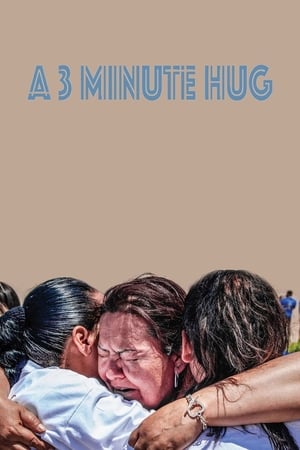 6.5
6.5A 3 Minute Hug(es)
As daylight breaks between the border cities of El Paso, Texas, and Juarez, Mexico, undocumented migrants and their relatives, divided by a wall, prepare to participate in an activist event. For three minutes, they’ll embrace in no man’s land for the briefest and sweetest of reunions.
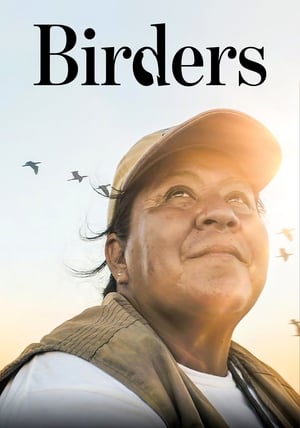 6.2
6.2Birders(en)
Bird watchers on both sides of the U.S.-Mexico border share their enthusiasm for protecting and preserving some of the world's most beautiful species.
 4.9
4.9Visions of Europe(en)
Twenty-five films from twenty-five European countries by twenty-five European directors.
Trump's Unlikely Superfans(en)
Ahead of the U.S. Presidential Elections, Angela Scanlon travels across America to meet some of Donald Trump's most unlikely supporters - including a second-generation Mexican American who wants Trump to build that wall.
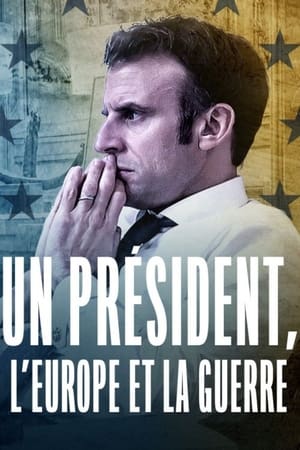 9.5
9.5A President, Europe and War(fr)
They call each other Emmanuel and Vladimir - but despite the informal tone, a fateful negotiation is taking place. During France's presidency of the EU, President Macron takes on the task of negotiating with President Putin in an attempt to prevent an invasion of Ukraine. For the first time, we get to follow the diplomatic game behind the scenes and hear parts of their phone conversations.
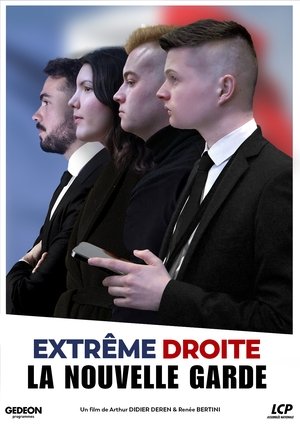 0.0
0.0Extrême droite, la nouvelle garde(fr)
On June 9, 2024, during the European elections, over half a million young voters backed Jordan Bardella, while others turned to Marion Maréchal. A new generation of leaders is emerging, reshaping old ideological foundations. From the youth wing of the Rassemblement National to student unions and Reconquête’s activists, we followed these key figures as they campaigned their way to the gates of power.
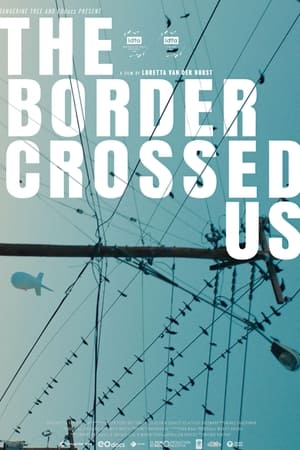 0.0
0.0The Border Crossed Us(en)
With a visual style that alternates between intimate verité moments, meditative reflection and suspenseful sequences, the film tells the story of Chief Ramon Gonzalez, detective Manuel Casas and officer Mayra Garza, as they navigate the complexities of their existence on the US/Mexican border.
 0.0
0.0The In Between(en)
Following the death of her brother, filmmaker Robie Flores returns to her hometown Eagle Pass on the Texas/Mexico border, wanting to turn back time. She collides with unruly experiences of adolescence – quinceañeras, Rio Grande river excursions, teen makeovers and beyond – that invite her to soak up the details of the home her brother adored and she ignored. What emerges is a playful dance between a personal and collective coming-of-age portrait of kids on the border and Robie herself as she rediscovers the possibilities of joy in the aftermath of grief.
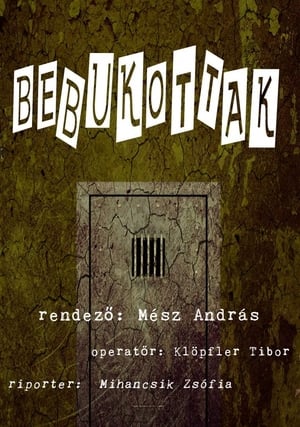 8.5
8.5The Fallen(hu)
The documentary was shot in the prison for juvenile delinquents in Hungary. It does not aim at judging whether the perpetrators were convicted rightly or not but, given the burden they carry, how they can reintegrate into society after they are released.
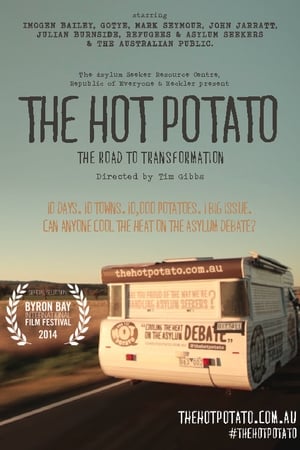 0.0
0.0The Hot Potato: The Road to Transformation(en)
To cool the heat on the asylum debate - the biggest 'hot potato' in Australian politics, we took a hot potato food van around the country in the lead up to the 2013 Federal Election. The mission? To see what Australia really thinks asylum seekers. This is an account of this journey.
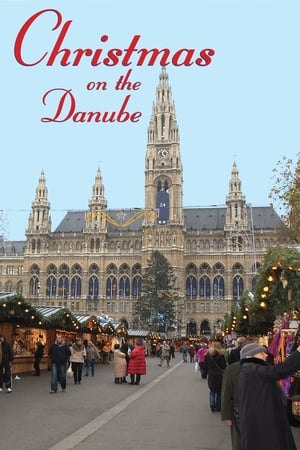 8.0
8.0Christmas on the Danube(en)
This documentary visits cities and towns and captures stunning landscapes along Europe's majestic Danube at Christmastime. Locations covered include Passau, Germany; Salzburg, Oberndorf, the Wachau Valley, and Vienna in Austria; Bratislava, Slovakia; and Budapest, Hungary. Along the way the viewer learns relevant history.
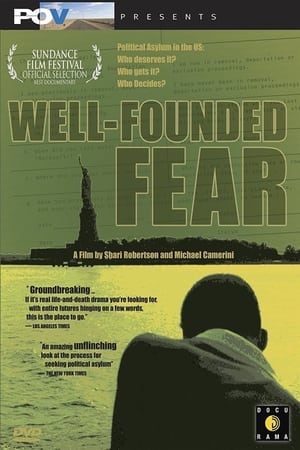 0.0
0.0Well-Founded Fear(en)
Examines how the Immigration and Naturalization Service decides who will be granted asylum in the United States. The applicant must have a "well-founded fear" of persecution in his or her home country. Despite true and terrifying stories of torture and mistreatment, it's often up to how well the translator presents the case and how sensitive are the ears of the asylum officer to decide a person's fate.
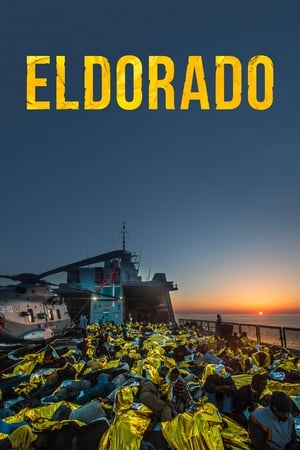 5.8
5.8Eldorado(de)
Drawing inspiration from his personal encounter with the Italian refugee child Giovanna during World War II, Markus Imhoof tells how refugees and migrants are treated today: on the Mediterranean Sea, in Lebanon, in Italy, in Germany and in Switzerland.
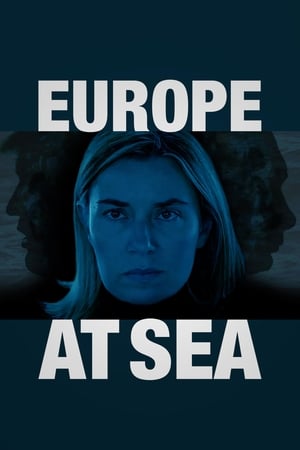 0.0
0.0Europe at Sea(en)
Exclusive access to chief diplomat of the EU Federica Mogherini as Europe faces a crumbling world order.
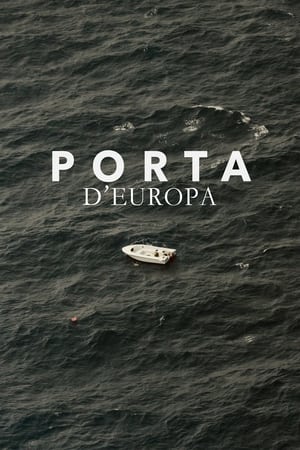 0.0
0.0Porta d’Europa(en)
A migrant boat has been stranded in the Mediterranean Sea for 30 hours. As authorities ignore calls for help, the Sea-Watch Crew, an NGO, launches an urgent search.
